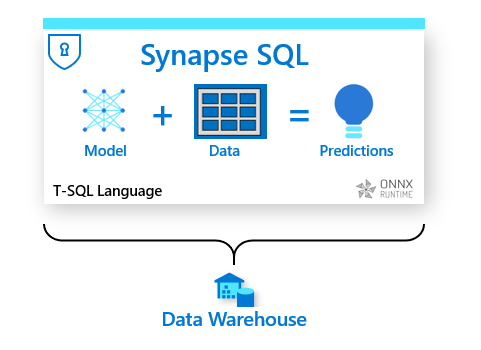In the world of data management and analytics, businesses often face a choice between two powerful platforms: Google BigQuery vs. Elasticsearch. Both offer impressive features and capabilities but cater to different data needs and use cases. In this blog post, we’ll conduct a thorough comparison of BigQuery and Elasticsearch to help you make an informed decision for your data analysis and management requirements.
Google BigQuery: A Robust Data Warehouse Solution
Google BigQuery is a fully managed, serverless, and highly scalable data warehouse solution offered by Google Cloud. It’s tailored for lightning-fast SQL queries, leveraging Google’s massive processing infrastructure. Here are some key features and advantages of BigQuery:
- Serverless Architecture: BigQuery eliminates the hassle of infrastructure management by handling provisioning and scaling automatically, allowing you to concentrate on your data and queries.
- SQL Integration: It supports standard SQL queries, making it accessible to data analysts and SQL-savvy users.
- Scalability: BigQuery can efficiently handle vast datasets and scale to meet your growing data demands.
- Real-time Data Analysis: Utilize BigQuery for real-time data analysis with features like streaming inserts and automated batch loads.
- Integration with Google Cloud: Seamlessly integrate with other Google Cloud services, such as Google Cloud Storage, Dataflow, and more.
- Pay-as-you-go Pricing: BigQuery offers a cost-effective, pay-as-you-go pricing model, making it budget-friendly for smaller workloads.
http://informationarray.com/2023/10/13/bigquery-vs-databricks-for-data-analysis/
Elasticsearch: The Versatile Search and Analytics Engine
Elasticsearch is an open-source, distributed search and analytics engine. It’s known for its versatility in handling unstructured and structured data, with a primary focus on search and log data analysis. Here are some key features and advantages of Elasticsearch:
- Full-Text Search: Elasticsearch excels at full-text search, making it a top choice for applications and websites requiring sophisticated search functionality.
- Near-Real-Time Data Indexing: It offers near-real-time indexing of data, which is invaluable for log and event data analysis.
- Scalability: Elasticsearch is built for scalability, easily accommodating your data growth and performance requirements.
- Data Ingestion: It supports various data ingestion methods and is suitable for log, time-series, and geospatial data.
- Open Source Community: Elasticsearch benefits from a robust open-source community, with numerous plugins and integrations available.
- Advanced Analytics: With the Elasticsearch ecosystem, you can perform advanced analytics and visualization.
http://informationarray.com/2023/10/11/apache-nifi-vs-apache-flink-a-comprehensive-analysis-of-data-processing-tools/
BigQuery vs. Elasticsearch: A Side-by-Side Comparison
| Feature | BigQuery | Elasticsearch |
|---|---|---|
| Type | Data Warehouse | Search and Analytics Engine |
| Query Language | Standard SQL | Elasticsearch Query DSL |
| Managed Infrastructure | Yes | Self-managed or cloud-managed |
| Data Scaling | Yes | Yes |
| Real-time Data Analysis | Yes | Near-real-time indexing |
| Integration with Other Services | Google Cloud ecosystem | Wide range of integrations |
| Full-Text Search | Limited (not its primary focus) | Yes |
| Scalability | Scalable with Google’s resources | Scalable architecture |
| Data Ingestion | Limited (best suited for structured data) | Versatile for various data types |
| Open Source Community | Limited (proprietary) | Strong open-source community |
| Advanced Analytics | Basic | Extensive with plugins |
Frequently Asked Questions
1. Which one is better for full-text search?
Elasticsearch is the preferred choice for full-text search due to its specialized capabilities in this area.
2. Is Elasticsearch suitable for structured data?
While Elasticsearch primarily excels with unstructured data and full-text search, it can handle structured data as well. However, BigQuery is more specialized for structured data analysis.
3. Which one is more cost-effective for small workloads?
For smaller workloads, BigQuery’s pay-as-you-go pricing model may be more cost-effective, especially if you’re already in the Google Cloud ecosystem.
4. Can I use Elasticsearch with cloud-managed services?
Yes, Elasticsearch can be used in a cloud-managed environment through services like Amazon Elasticsearch Service and Elasticsearch Service on Elastic Cloud.
5. Which one is better for log data analysis?
Elasticsearch is well-suited for log and event data analysis due to its near-real-time indexing capabilities.
In conclusion, the choice between BigQuery and Elasticsearch should be driven by your specific data analysis and management requirements. BigQuery is ideal for structured data and SQL-driven analysis, while Elasticsearch excels at full-text search and unstructured data analysis. Consider your existing infrastructure, data types, and budget when making your decision.
External Links:









